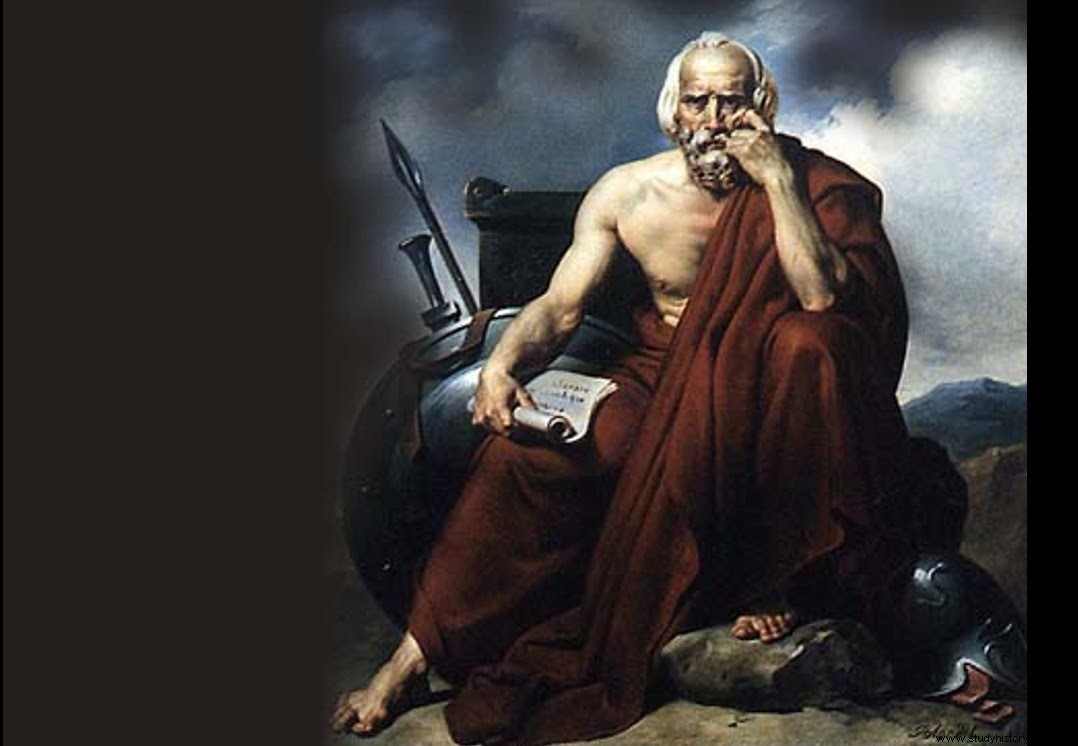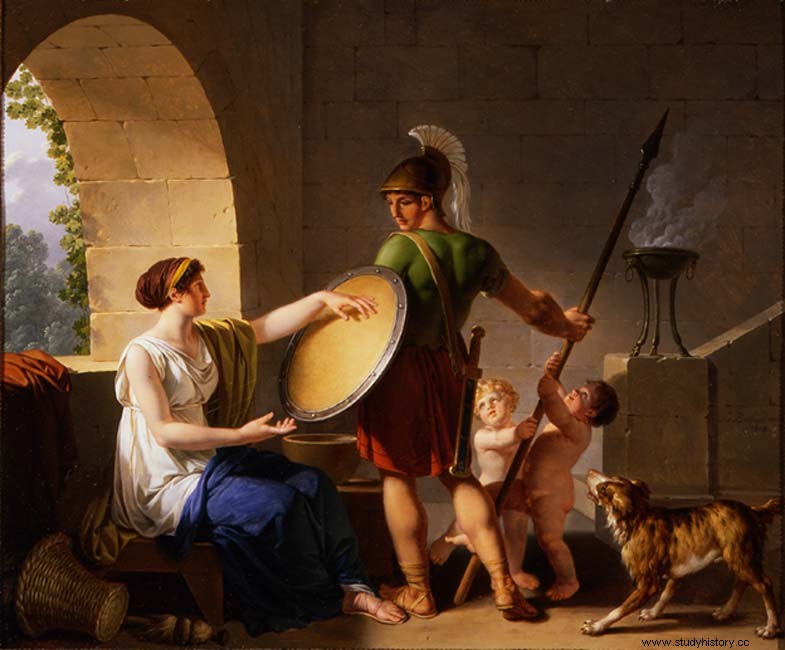This corruption thing must be innate to the human condition, because throughout history and anywhere in the world we find multiple business opportunities for the followers of the saying “I don't ask you to give me, just put me where beech ”. To prosecute this type of crime and tackle this social scourge, in 1995 the Anti-Corruption Prosecutor's Office was created in Spain. Well, in Sparta laws have already been enacted to put an end to this type of crime.

Lycurgus of Sparta
The legislator who tried to put an end to corruption, in addition to ostentation and social inequalities, was Licurgo de Esparta . It should be specified before continuing that this character, who is credited with the paternity of the Great Retra , the fundamental law that governed the Spartans and, therefore, of the spirit and ideals of Sparta that has come down to us, straddles history and legend -something very common among the relevant characters of Antiquity-. Although it is difficult to place him in time, he was cited by historians such as Herodotus, Xenophon or Plutarch. And we are going to use the latter, specifically in his work Parallel Lives , to find out what reforms he implemented in Spartan society.
If corruption is synonymous with illicit enrichment, Licurgo tried to tackle it by going directly to the root of the problem:money. He suppressed all the old gold and silver coins, and ordered to mint new iron coins assigning them such a low value that the Spartans had to change the purses for horse-drawn carts...
And with this change alone Lacedaemonia was freed from many kinds of crimes; for who was to steal or bribe, or cheat, or take from one's hands a thing that could neither be concealed, nor excite greed, nor be profited by tearing it to pieces? […] Whereas an iron coin, which was an object of ridicule, had no attraction for the other Greeks, nor any esteem; Thus, foreign effects could not be bought with it at any price, nor could a commercial ship enter the ports, nor approach Laconia, either a talkative sophist, or a greeter and a charmer, or a man of bad dealings with women, or a goldsmith. and silver, not having money:in this way, deprived the luxury of its incentive or pabulum, by itself it vanished; and to those who had more than others it was of no use, there being no way to show their abundance, which had to be confined and idle.
And to give the finishing touch to the idle rich whose only concern was to taste the excellent delicacies that only they could afford, he forced everyone to eat the same food, in the same quantity, and to do so in communal dining rooms.
Wanting to pursue luxury even more and eradicate the desire for wealth, he legislated on banquets, making everyone meet together to eat the indicated delicacies and stews, and eat nothing at home, nor did they have cloths and tables of great price, or hang of cutters and cooks, fattening themselves in the dark, like insatiable animals, and spoiling, with habit, the bodies, incited to immoderate desires and glut, in need of long dreams, hot baths, a lot of rest, and to be as in continuous illness.

His reforms could be summed up in three principles:a good education, contempt for wealth and love of country. And although closer to legend than reality, his ending is also noteworthy. Before leaving his homeland, since he had to undertake a journey, he made the Spartans swear that they would abide by the laws until his return. Having achieved this oath, he left and never returned. It is said that he took his own life so that the observance of the laws by the Spartans would be perpetual.
Sources:The inventions of the ancients.
